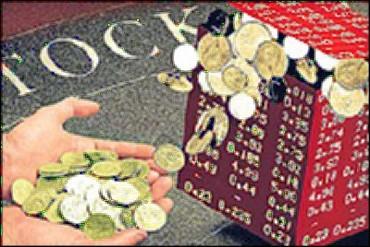 | « Back to article | Print this article |
What is 'share buyback' and how does it impact investors?
With RIL announcing a buyback after seven years, a primer on how it impacts shareholders.
What is it? It is the repurchase of shares by a company from the open market. Companies buy back to raise the value of shares still available (by reducing supply) or to eliminate threats by shareholders looking for controlling stake.
Buyback is done when a company feels its share is undervalued. For instance, RIL's share price fell 35 per cent in one year, whereas the Sensex fell 25 per cent.
Click NEXT to read more...
What is 'share buyback' and how does it impact investors?
Buyback limit: The repurchase of shares in any financial year cannot exceed 25 per cent of its total paid-up capital of that year. All the shares or other specified securities for buyback are fully paid up. Buybacks involve paying cash to shareholders so that the company can cancel stocks.
How it is done: A company can buy shares from free reserves, securities premium account, etc. There are different sources for purchase. Shares can be bought from shareholders on a proportionate basis or through stock exchanges by book-building process, purchasing the securities issued to employees of the company pursuant to a scheme of sweat equity.
Click NEXT to read more...
What is 'share buyback' and how does it impact investors?
Timeline (the process): A public announcement specifies a date to determine the names of the shareholders to whom the letter of offer will be sent. The date of opening of the offer cannot be earlier than seven days or later than 30 after the specified date.
The buyback offer remains open for not less than 15 days and not more than 30. A company opting for buyback opens an escrow account.
Click NEXT to read more...
What is 'share buyback' and how does it impact investors?
Objectives: It increases the earning per share (EPS), supports share value, increases promoters' holdings and rationalises the capital structure by writing off capital.
Investor benefit: The return on equity rises, demand can rise, leading to a spike in share price. Though RIL has not made any announcement of the price, if it announces the repurchase at a premium, the share price will rise. Investors can make capital gains in the run-up to the buyback.



